CHISQ.INV.RT function - The function returns the inverse of the right end probability of the distribution when squared in Excel
The following article introduces you to CHISQ.INV.RT function - one of the functions in the statistical function group is very popular in Excel.

Description: The function returns the inverse of the probability of the right end of the distribution when squared. Support function from Excel 2010 version.
Syntax: CHISQ.INV.RT (probability, deg_freedom)
Inside:
- probability: Probability associated with the distribution when the square of the distribution.
- deg_freedom: Number of degrees of freedom.
Attention:
- If any value of the parameter is not numeric -> the function returns the error value #VALUE!
- If deg_freedom is not an integer -> it is truncated to an integer.
- If probability <0 or probability> 1 -> the function returns the #NUM! Error value
- If deg_freedom <1 or deg_freedom> 10 ^ 10 -> the function returns the #NUM! Error value
For example:
Calculate the inverse value of the right-headed probability when the square of the distribution is based on the data in the table below:
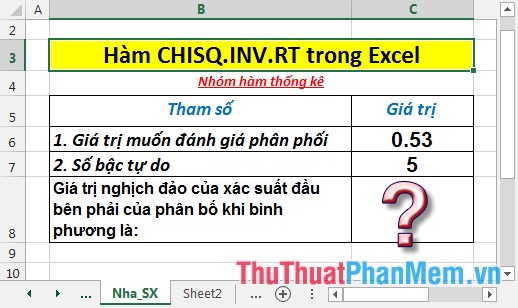
- In the cell to calculate enter the formula: = CHISQ.INV.RT (C6, C7)
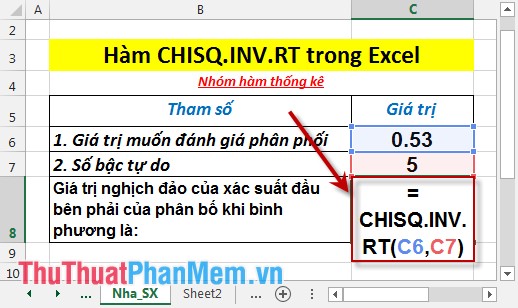
- Press Enter -> the inverse of the probability of the right end of the distribution when the square is:
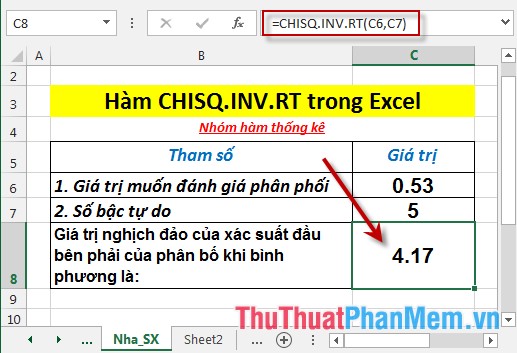
- Case 1 of the values of the parameters is not a number -> the function returns the error value #VALUE!
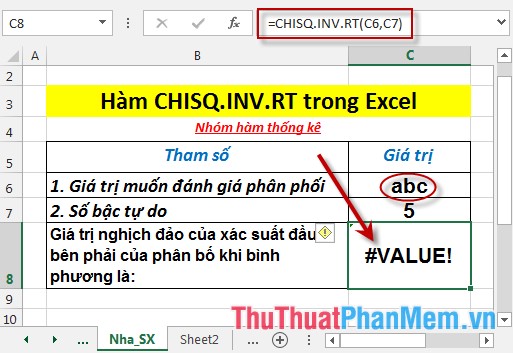
- If the number of degrees of freedom is less than 1 or greater than 10 ^ 10 -> the function returns the #NUM! Error value
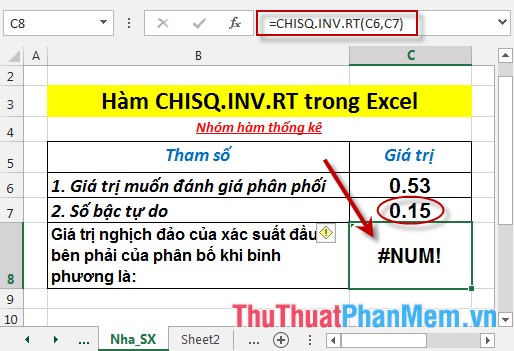
Above are instructions and some specific examples when using the CHISQ.INV.RT function in Excel.
Good luck!
You should read it
- ★ CHISQ.DIST - Function returns the distribution when squared in Excel
- ★ F.INV function - The function returns the inverse of the probability distribution F in Excel
- ★ F.INV.RT function - The function returns the right-inverse head value of the probability distribution F in Excel
- ★ CHIDIST function - Function returns the right end probability of the distribution when squared in Excel
- ★ CHISQ.TEST function - The function returns the independence test in Excel